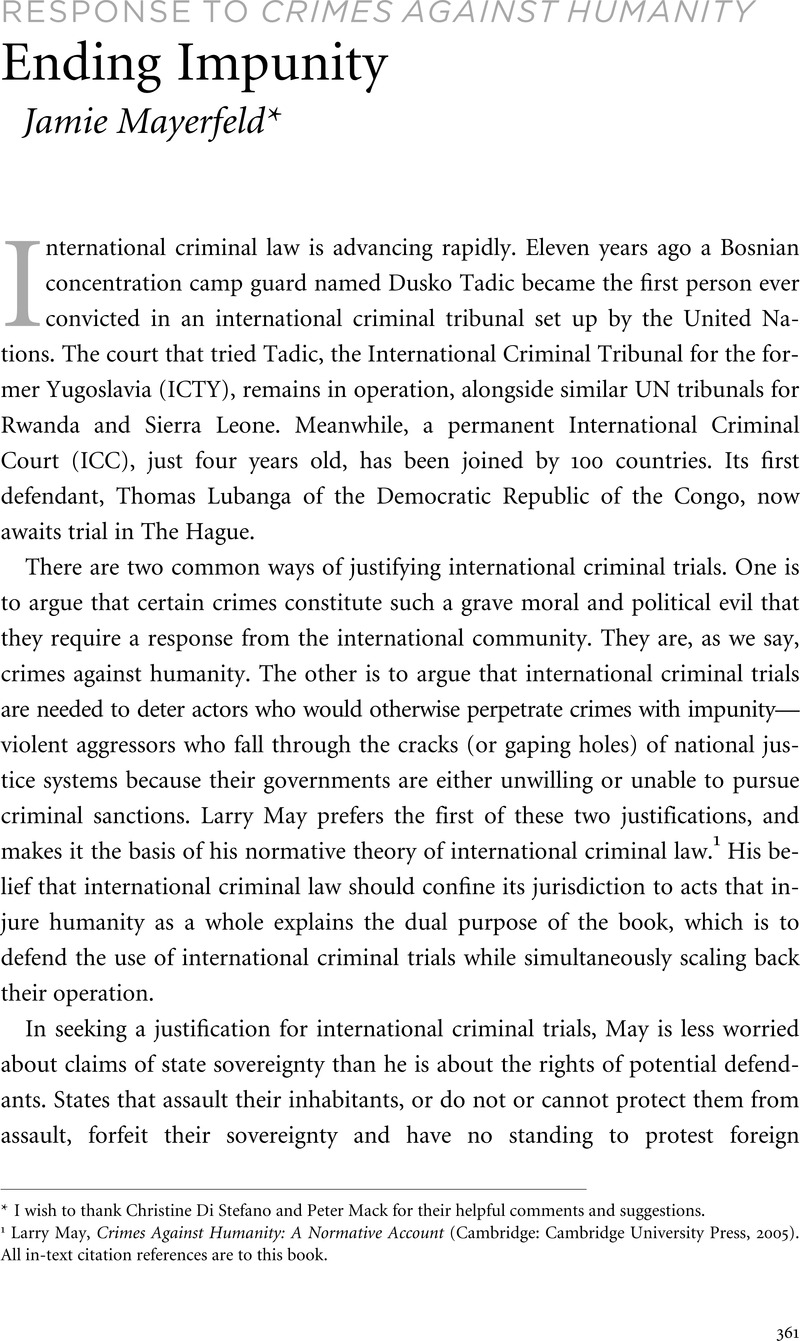Article contents
Abstract

- Type
- Symposium
- Information
- Copyright
- Copyright © Carnegie Council for Ethics in International Affairs 2006
References
* I wish to thank Christine Di Stefano and Peter Mack for their helpful comments and suggestions.
1 Larry May, Crimes Against Humanity: A Normative Account (Cambridge: Cambridge University Press, 2005). All in-text citation references are to this book.
2 An extreme case is Pakistan, where a rape victim who presses charges without the support of four male witnesses risks punishment for fornication or adultery. Many countries do not recognize marital rape as a crime. For a discussion of the legal and cultural norms that perpetuate rape, see Martha C. Nussbaum, Sex and Social Justice (New York: Oxford University Press, 1999), pp. 82, 90–93, and 136–44.
- 4
- Cited by




